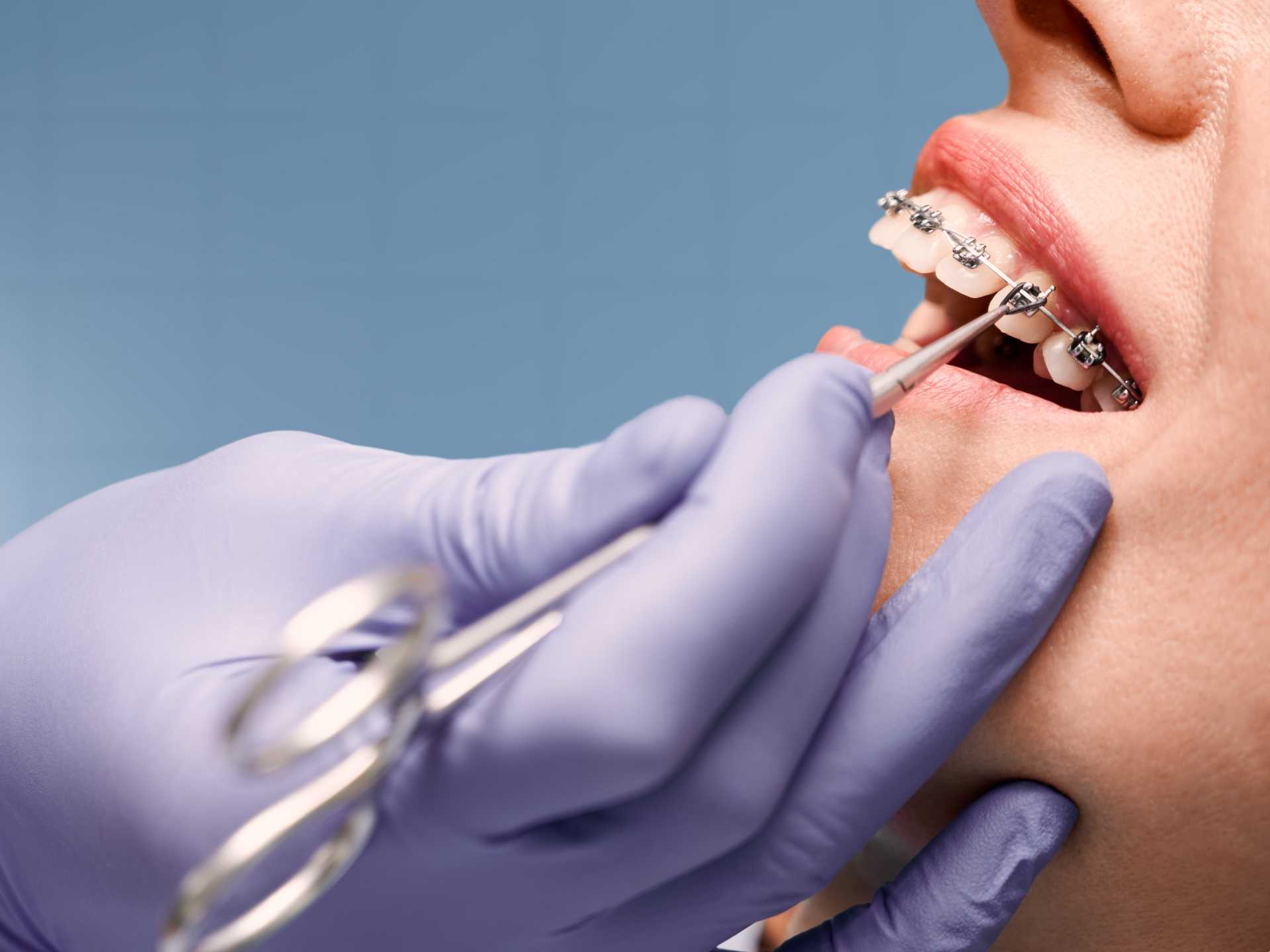Date
The goal of orthodontic treatment is not just to give you a beautiful, confident smile but to improve the overall health of your mouth and teeth. Straighter teeth are easier to clean, and a properly aligned bite can prevent issues like tooth wear, jaw pain, and speech problems. However, while you’re undergoing treatment with braces, it’s important to be diligent about your oral hygiene. Otherwise, you can develop stains, cavities, and gum problems, which can hinder your long-term dental health.
Here are essential guidelines for maintaining your oral health during treatment:
1. Brush After Every Meal
Brushing twice a day is a general recommendation for most people, but if you have braces, you’ll need to brush after every meal. The brackets and wires of braces create numerous small spaces where food particles can get stuck, and if left there, these particles can lead to plaque buildup, cavities, and gum disease. Ideally, use a toothbrush designed for braces or an orthodontic toothbrush with soft bristles and a V-shaped pattern, which helps clean around the brackets.
When brushing with braces:
- Start by rinsing your mouth with water to loosen any food stuck around the braces.
- Use a fluoride toothpaste and brush gently in circular motions at a 45-degree angle, making sure to clean above, below, and between each bracket.
- Don’t forget to brush your tongue and the roof of your mouth as well.
2. Floss Daily
Flossing with braces can seem tricky, but it’s vital to your oral hygiene routine. Flossing removes food particles and plaque from between your teeth and along the gumline—areas that brushing may miss. If plaque is allowed to build up, it can lead to swollen gums, cavities, and bad breath.
To floss with braces:
- Use a floss threader or orthodontic floss, which is specially designed to fit underneath the wires of braces.
- Gently slide the floss between the teeth, making sure to curve it around the tooth in a C-shape to clean the sides thoroughly.
- Alternatively, you can use interdental brushes or water flossers, which can be easier to maneuver around the brackets and wires.
3. Watch What You Eat
Certain foods are more likely to damage your braces or get stuck in them, which can affect your oral hygiene and prolong your treatment time. As a general rule, avoid sticky, hard, and sugary foods. Here’s a list of foods to be cautious of:
- Hard Foods: Nuts, popcorn, ice, and hard candies can damage the wires and brackets.
- Sticky Foods: Gum, caramels, taffy, and other sticky treats can get stuck in your braces and are hard to remove, potentially leading to plaque buildup.
- Sugary Foods and Drinks: Sodas, sugary snacks, and even sports drinks are high in sugar and can increase your risk of cavities if they get trapped around your braces.
- Cut Crunchy Foods into Smaller Pieces: For fruits and vegetables that are harder to bite into, like apples or carrots, cut them into bite-sized pieces to minimize stress on your braces.
4. Use Mouthwash for Extra Protection
Brushing and flossing are your first lines of defense against plaque and bacteria, but adding an antibacterial mouthwash can give you an extra layer of protection. Fluoride mouthwashes help strengthen tooth enamel and prevent cavities, while an antimicrobial mouthwash can help reduce the risk of gingivitis (gum disease). Look for mouthwashes that are orthodontist-recommended and consider swishing for 30 seconds after brushing and flossing.
5. Attend Regular Orthodontic Appointments
Routine checkups with your orthodontist are key to keeping your treatment on track and maintaining your oral health. During these appointments, your orthodontist will adjust the braces, monitor your progress, and check for any issues, such as loose brackets or wires. It’s also an opportunity for you to ask any questions or voice concerns about your braces and overall dental care.
In addition to seeing your orthodontist, don’t forget your regular visits to your general dentist. Professional cleanings are crucial to remove any plaque or tartar buildup that your daily brushing and flossing may miss, ensuring your teeth stay healthy throughout treatment.
6. Avoid Teeth Whitening Products
While it might be tempting to keep your teeth as white as possible during orthodontic treatment, avoid using teeth whitening products like whitening toothpaste or strips while you have braces. Whitening agents can only reach the exposed surfaces of your teeth, and the areas covered by brackets won’t whiten. This can lead to uneven tooth color when the braces are removed. Focus on maintaining excellent oral hygiene and wait until your braces are off to address any discoloration.
7. Be Prepared for Orthodontic Emergencies
Braces can occasionally cause discomfort, especially after adjustments. Sometimes, brackets or wires can come loose, creating irritation in the mouth. To manage these situations:
- Use orthodontic wax to cover any sharp edges that might be poking your gums or cheeks.
- If a wire becomes loose, you can use the eraser end of a pencil to gently push it back into place.
- Over-the-counter pain relievers can help with discomfort after adjustments.
If you experience a major issue—like a broken bracket or severe pain—it’s important to contact your orthodontist immediately for advice or an emergency appointment.
8. Stay Hydrated
Drinking plenty of water throughout the day helps rinse food particles and bacteria from your mouth, keeping your teeth and braces cleaner between brushings. Water also stimulates saliva production, which naturally neutralizes harmful acids and aids in the prevention of cavities.
9. Be Patient and Stay Committed
Braces are a long-term investment in the health and appearance of your smile. Although taking care of your teeth may require extra effort while wearing braces, the results will be well worth it. By following these guidelines, you’ll not only ensure that your teeth stay healthy during treatment but also set yourself up for a smooth transition when the braces come off.
Maintaining good oral hygiene with braces is essential to achieving the best possible results from your orthodontic treatment. By brushing after every meal, flossing daily, attending regular checkups, and being mindful of your diet, you can keep your teeth and gums healthy throughout the process. Remember, the end goal is a healthier, more confident smile—so stay committed to your dental care, and your future self will thank you! Book an appointment today.


 703-734-2750
703-734-2750








